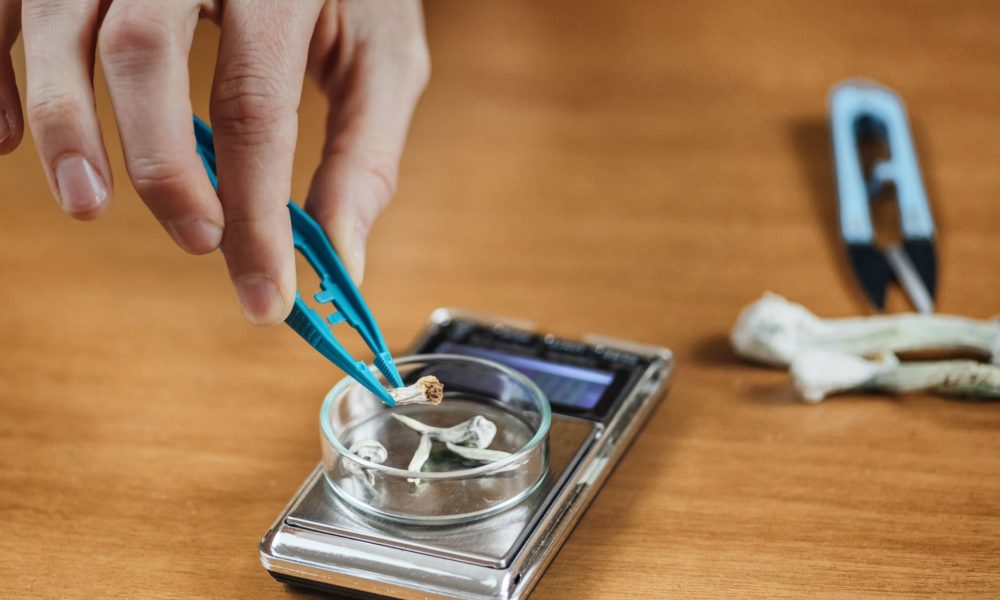Blogs
Can Athletes Benefit from Microdosing Psychedelics?

What can atheletes get from using small amounts of psilocybin and psychedelics?
The psychedelic revolution is upon us, and things are only about to get better.
Magic mushrooms and many other psychedelics like LSD are now popularly being consumed, especially in microdoses, to improve overall quality of life. It has been proven to be helpful in battling anxiety, stress, post-traumatic stress disorder, and depression – even treatment resistant cases. Consuming low doses of psilocybin, usually 1/20th of a normal dose, is far too low to induce hallucinations, has been shown to provide significant improvements in mental and emotional health. It can also improve creativity.
But can athletes benefit from these therapeutic and cognitive benefits of psychedelics?
Psychedelics, perhaps until now, was never even considered to be a performance enhancing drug. But what if LSD, magic mushrooms, and the like have been shown to enhance athletic performance? Would it have an impact on elite sports?
What We Know So Far
From the studies and anecdotal evidence that we have on the impact of psychedelics, it’s safe to say that – if we can benefit from the cognitive and mental health benefits of psychedelics, shouldn’t this apply to athletes too? They’re humans too, and they also suffer from extreme stress and pressure that comes with their jobs. And who knows – maybe psychedelics would someday be accepted as a performance enhancer?
One of the most famous stories of this took place in 1970, when Dock Ellis, Pittsburgh Pirates pitcher, threw a no-hitter while under the influence of LSD. No-hitters are defined as the moment pitchers prevent the opponent from hitting the ball even a single time during a game. Such an occurrence is a rare feat in baseball. Ellis later on divulged his experience to NPR before he died, and his story was later made into a short film.
“I started having a crazy idea in the fourth inning that Richard Nixon was the home plate umpire,” Ellis disclosed in the interview. “And once I thought I was pitching a ball to Jimi Hendrix, who to me was holding a guitar and swinging it over the plate,” he said.
More recently, a feature article in the Multidisciplinary Association for Psychedelic Studies (MAPS), James Oroc, an athlete and author, discussed how winter sports athletes made use of psychedelics. He discusses that psycholytic doses are low, which is essentially the same as microdosing.
“Virtually all athletes who learn to use LSD at psycholytic dosages believe that the use of these compounds improves both their stamina and ability,” he says. The athletes reported improvements in concentration, reflexes, and balance plus an improved ability to deal with fatigue as well as altitude sickness. The athletes explain that the microdosed psychedelics helped get them into a “flow state” and said that they were even able to coordinate more efficiently without thinking about it too much.
In 2020, a research paper called “Advancing elite athlete mental health treatment with psychedelic-assistant psychotherapy” was the first to discuss the therapeutic potential of psychedelics on the mental health of athletes. According to the researchers, “the field of sports psychology and psychiatry would be well advised to take note of this promising research area, and to begin a dialogue on how to best address the challenge and explore the opportunities of psychedelic medicine for elite athletes.”
Where Do We Stand, Legally?
Even if psychedelics have been on the Schedule I drug classification since the 1970’s, that hasn’t stopped many cities around the United States from decriminalizing or allowing its use for therapeutic purposes. After all, the Controlled Substances Act is already considered archaic and we have dozens of clinical trials, perhaps even hundreds, that already prove how safe psychedelics are.
Currently, psilocybin isn’t on the list of banned performance-enhancing drugs, according to the US Anti-Doping Agency (USADA). They do state on their website that certain sports may prohibit its use, and ban other psychedelic drugs. Naturally, since hallucinations can impair athletic performance, they recognize that it has its risks. But microdosing is different – and it can have numerous benefits outside of the field or gym.
A World Of Opportunity For Athletes
Psychedelics may not even just be about performance enhancement. Researchers are looking into the potential of using psychedelics for treating traumatic brain injuries. An estimated 1.6 to as much as 3.8 million cases of traumatic brain injuries occur due to sports each year.
Last year, MINDCURE, a wellness company, announced that they will be investing efforts into researching if psychedelics can treat traumatic brain injuries. They will be utilizing Psycollage, their bioinformatics platform, to assist with research and identifying opportunities for using ibogaine, a psychoactive substance. MINDCURE sees the potential of ibogaine for treating neuropathic pain and brain trauma thanks to research that shows it can promote the growth of new dopamine neurons while helping to repair the reward system in the brain.
In addition, psychedelics may also be used as an alternative to dangerous and addictive opioids for athletes to treat pain. A study published by UC San Diego Psychedelics and Health Research Initiative (PHRI) member, Timothy Furnish and Joel Castellano as well as others, highlight how promising this could be for chronic pain.
“Neuropathic pain conditions such as phantom limb pain are often difficult to treat,” Furnish explains. “The possibility that psychedelics could reorganize pain pathways in the brain holds out the promise of a much more long-lasting treatment than current medication can offer.”
Conclusion
We’re optimistic that, just like with cannabis, it would only be a matter of time until elite sports associations acknowledge the myriad of benefits that psychedelics can offer. Cannabis is becoming more socially accepted even in sports – soon, psychedelics can too.
Source: https://cannabis.net/blog/medical/can-athletes-benefit-from-microdosing-psychedelics